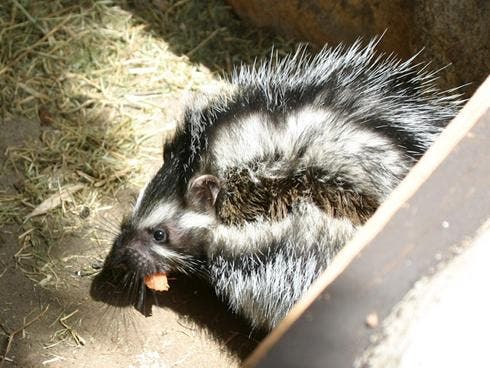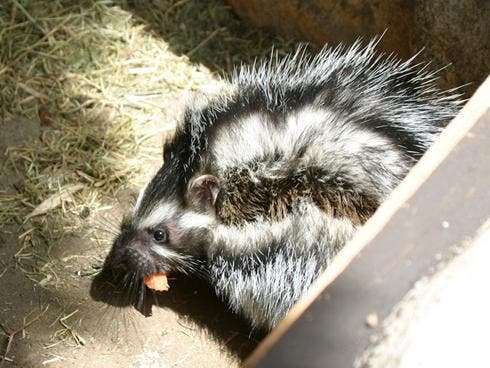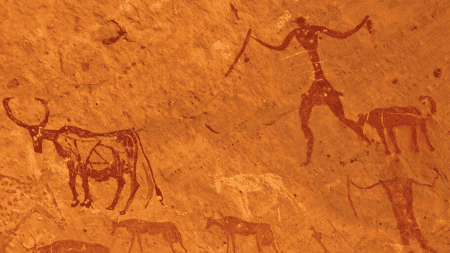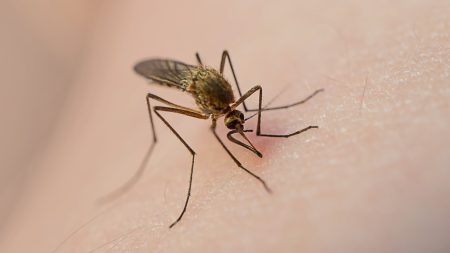
I’ve always amazed how some non-primate species manage to sometimes use the environment to their advantage, in a tool-like use manner. The African Crested Rat, however, takes this to a whole new other level.
It’s the only known mammal in the world, besides humans, that uses poison for defensive purposes. He does this by chewing on the barks of Acokanthera trees, a while toxic plant, and then slathers poisonous spit onto special absorbent hairs on its flank. Apparently, the rat is immune to to poison, its natural enemies aren’t. The toxine is to this day actually used by human hunters, and its been known to have been used to put down elephants.
At first, reserachers thought that the rat itself was poisonous, hinted by its black-and-white skunk-like coloration. Reports of dogs and other pets being poisoned after coming into contact with the rat, sparked the researchers’ interest. After a close observation, however, scientists found that the rat used the poison from nature, extracting a compund called ouabain found these tree barks.
“At between 40 and 50 centimeters long, the Crested Rat looks quite innocuous as it clambers about in rocky, wooded valleys in Kenya and the Horn of Africa,” says Jonathan Kingdon of Oxford University’s Department of Zoology.
“But once disturbed or attacked, the long fur on its flanks parts to expose a vivid black and white pattern around a leaf-shaped tract of peculiarly specialised hair, almost as if it is ‘daring’ a predator to take a bite of these poisoned hairs.”
To test their theory, scientists from the Wildlife Conservation Society, the University of Oxford and the National Museum of Kenya tested a wild-caught rat. Inside the rat’s cage, researchers introduced some branches and roots from the Acokanthera tree. Not long after, the rat proceeded to start gnawing the bark, before rubbing the saliva on itself.
“We observed the rat gnawing Poison-arrow tree bark directly from the plant, chewing it and then deliberately slathering the resulting mixture onto its specialised flank hairs,” says Kingdom.
Not many is know about the African Crested Rat, and scientists still aren’t sure how the rodent is able to chew on the highly toxic plant without getting sick itself. Further research might provide much welcomed advancements int he field of medicine.









